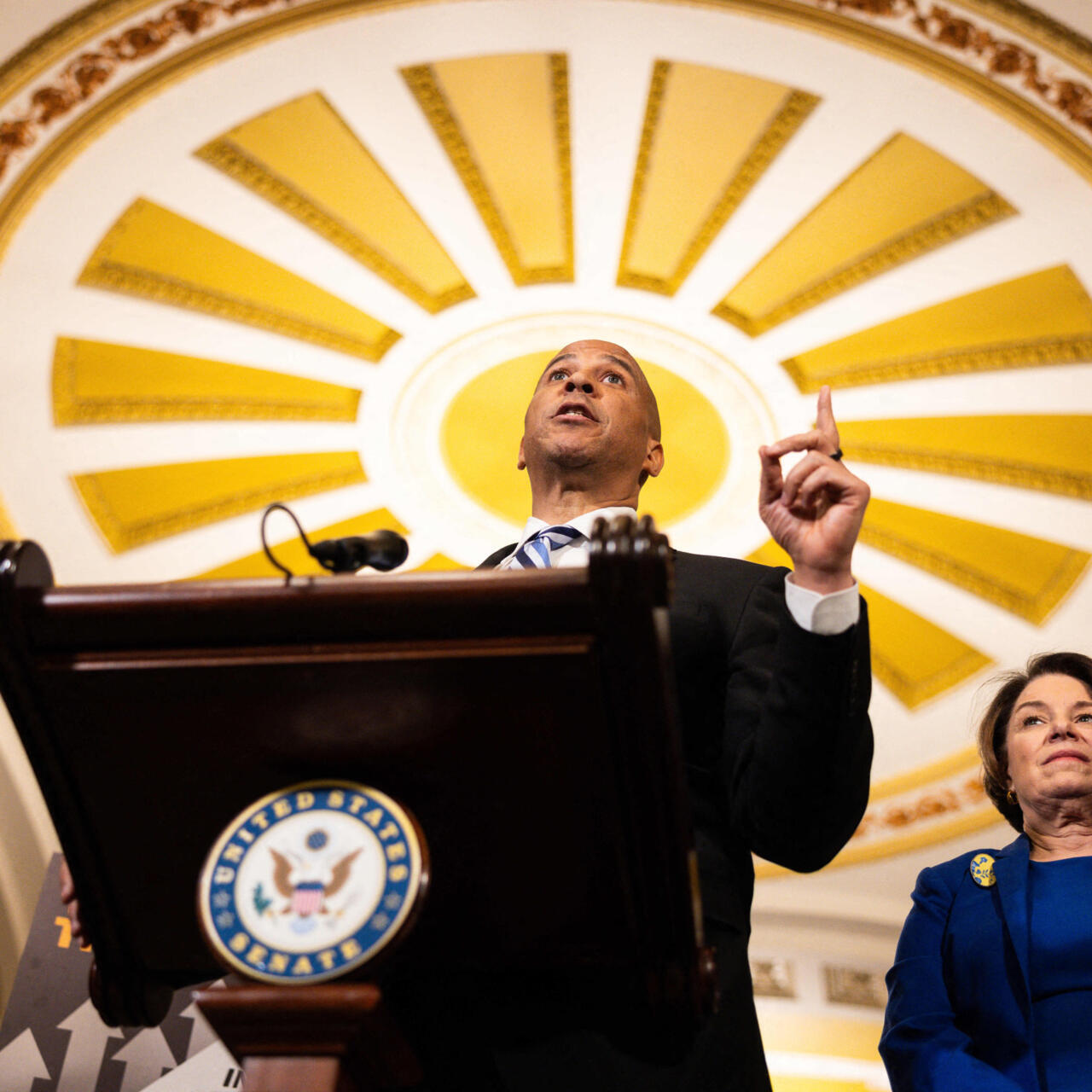Throughout U.S. history, filibusters have been praised as an opportunity for minority political groups to delay and potentially block legislation from passing through the Senate, while also receiving condemnation for their intentional obstruction of the flow of meaningful debate. Regardless of opinion, current Senator Cory Booker has made history with the country’s longest-ever filibuster at 25 hours and five minutes. For those unfamiliar with the term, a filibuster is a continuous speech designed to prolong debate and delay or prevent a vote on a bill. These extensive speeches are permitted because, unlike in the House of Representatives, there is minimal restriction on a Senator’s speech duration, meaning that if a Senator simply continued to speak for long enough, they would hope the opposing majority would either permanently delay or pull the bill altogether to continue with regular proceedings.
 The history of the filibuster dates back to the first-ever gathering of the U.S. Senate in 1789, when Senator William Maclay wrote in his diary, “The [intent] of the Virginians . . . was to talk away the time so that we could not get the bill passed.” Since then, filibusters have remained an integral part of U.S. Senate culture, with minimal regulation over time. The only limits put in place to prematurely end a filibuster were created by Woodrow Wilson in 1917, which would allow Senators to file a motion to invoke cloture, meaning if two-thirds of the Senate (later changed to 60 Senators) voted to end the filibuster, the speech would be forced to finish. This policy, known as Senate Rule 22, was invoked for the first time only two years later, in 1919, when the Senate voted to end a filibuster against the Treaty of Versailles following World War I. Their popularity rose, especially among Southern Senators opposing the civil rights movement, throughout the 1950s and 1960s. Previous to Senator Cory Booker, the longest filibuster on record was held by Senator Strom Thurmond, a southern Democrat from South Carolina, when he opposed the Civil Rights Act of 1957 for 24 hours and eighteen minutes. Thurmond was protesting the passage of the first federal civil rights legislation since the post-Civil War Reconstruction era.
The history of the filibuster dates back to the first-ever gathering of the U.S. Senate in 1789, when Senator William Maclay wrote in his diary, “The [intent] of the Virginians . . . was to talk away the time so that we could not get the bill passed.” Since then, filibusters have remained an integral part of U.S. Senate culture, with minimal regulation over time. The only limits put in place to prematurely end a filibuster were created by Woodrow Wilson in 1917, which would allow Senators to file a motion to invoke cloture, meaning if two-thirds of the Senate (later changed to 60 Senators) voted to end the filibuster, the speech would be forced to finish. This policy, known as Senate Rule 22, was invoked for the first time only two years later, in 1919, when the Senate voted to end a filibuster against the Treaty of Versailles following World War I. Their popularity rose, especially among Southern Senators opposing the civil rights movement, throughout the 1950s and 1960s. Previous to Senator Cory Booker, the longest filibuster on record was held by Senator Strom Thurmond, a southern Democrat from South Carolina, when he opposed the Civil Rights Act of 1957 for 24 hours and eighteen minutes. Thurmond was protesting the passage of the first federal civil rights legislation since the post-Civil War Reconstruction era.
Now, 67 years later, Senator Cory Booker, a New Jersey Democrat, has shattered this record with his continuous 25-hour speech. Booker did not once sit down, eat food, or use the restroom during his protest of the Trump administration’s first months. When asked about the legacy of record-breaking filibusters, Booker stated, “I always felt there was a strange shadow in this institution that the longest speech was held by Thurmond.” Given the inherently racist nature of the previous record holder, Booker was hopeful that Thurmond’s legacy would not remain permanent, stating, “Maybe, just maybe, I could break this record of the man who tried to stop the rights upon which I stand,” Booker said. “[But] I’m not here, though, because of his speech; I’m here despite his speech.” During his 25 hours, Booker covered a vast range of topics, from condemning Elon Musk’s Department of Government Efficiency (DOGE) to objecting to Trump’s foreign policy moves, including his warmer tone toward Russian President Vladimir Putin and criticism of NATO. Through his protest, Booker used his voice as a Democrat in the minority of the Senate (53 Republicans to 47 Democrats) to strategically draw national attention to issues that he believed were being ignored or overshadowed by the Republican majority. Whether the speech will galvanize support that will lead to tangible legislative change remains uncertain. However, Booker nonetheless serves as a reminder that individual voices can still command attention and influence national discourse.



























